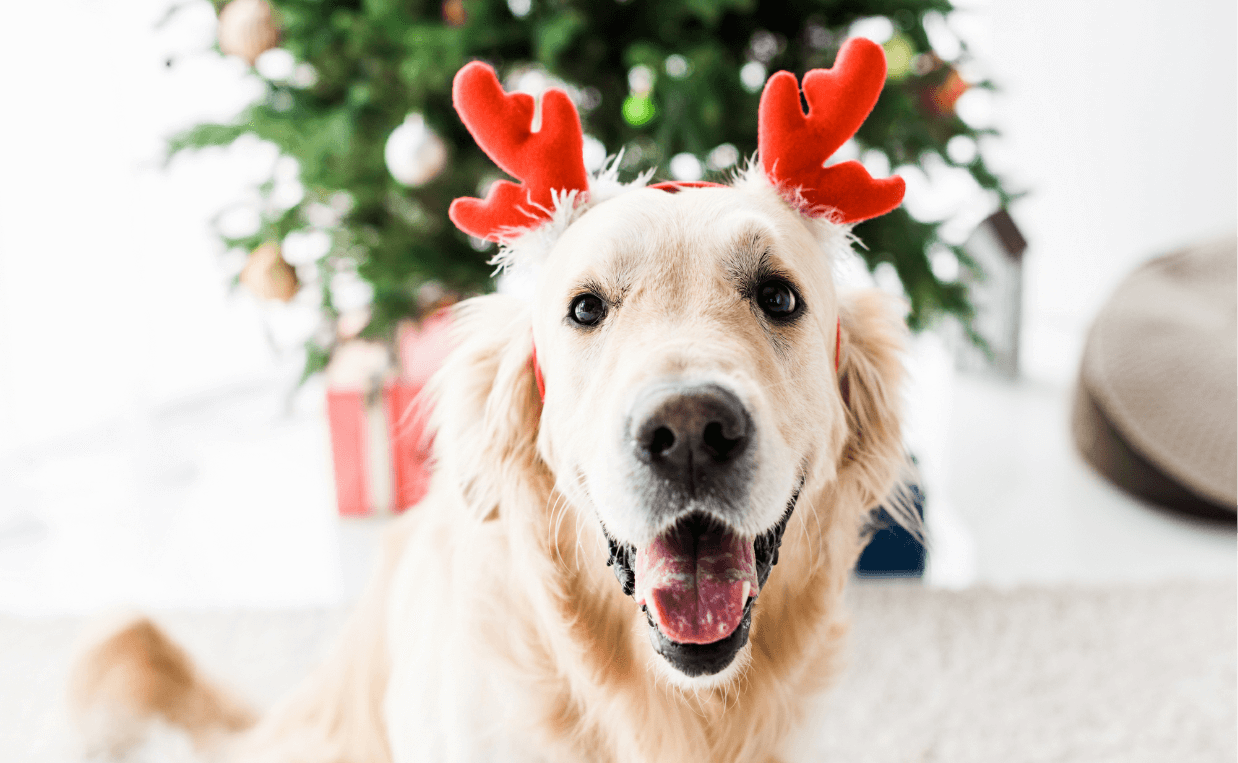
This holiday season, while you’re busy wrapping gifts, decorating, cooking and spending time with friends and family, remember to watch out for hazards your dog might get into.
Non-Edible Dangers
Here are 5 non-edible dangers for you to be aware of so you can keep your dog safe during the holiday season.
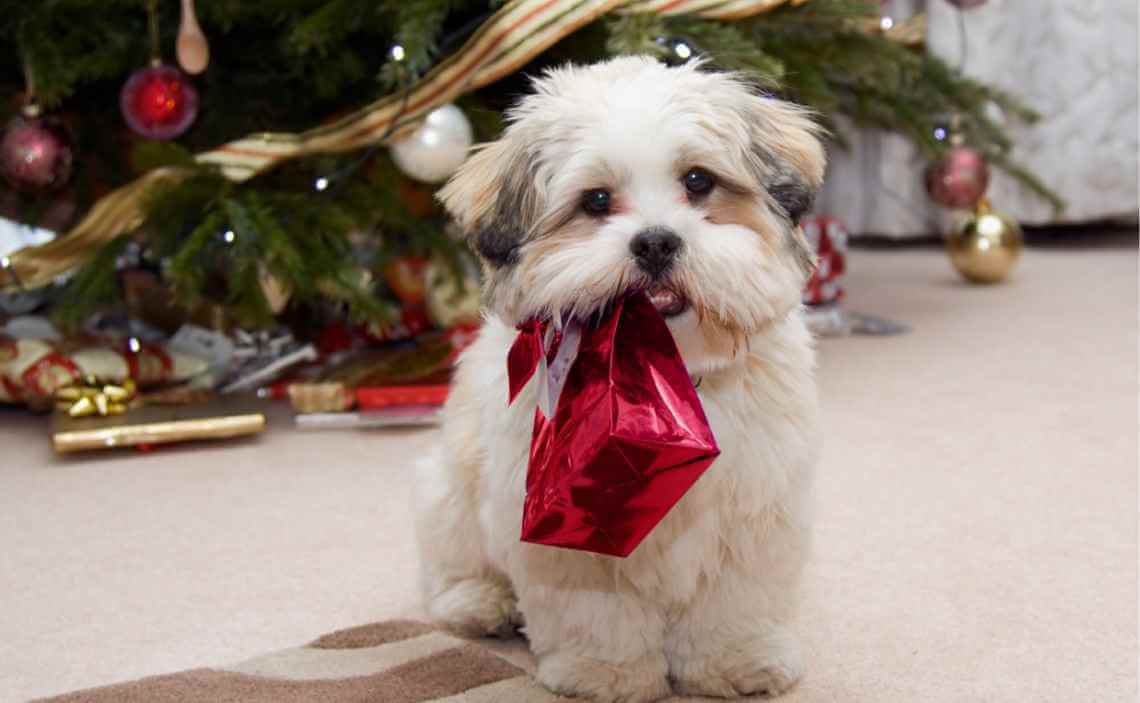
-
Holiday plants
Some dogs, and especially puppies, are prone to eating houseplants. Certain plants, such as poinsettias, holly or mistletoe are especially dangerous for dogs.
- Poinsettias – may irritate your dog’s mouth and stomach and cause vomiting and diarrhea.
- Mistletoe – major toxic chemicals include lectins and phoratoxins. These chemicals affect the heart, causing low blood pressure and slowed heart rate. Symptoms to watch out for include vomiting, diarrhea, difficulty breathing, slowed heart rate, low blood pressure and odd behavior.
- Holly – can cause drooling, vomiting, diarrhea, loss of appetite and decrease activity.
-
Tinsel and ribbons
Dogs, and especially puppies, may find decorations irresistible. However, they can cause serious stomach and intestinal damage. When decorating for the holidays, wrapping or unwrapping gifts, be sure to keep leftover tinsel, string, bows and ribbons.
Play it safe and keep tinsel away from your dog, and collect bows, ribbons and string after gifts are opened.
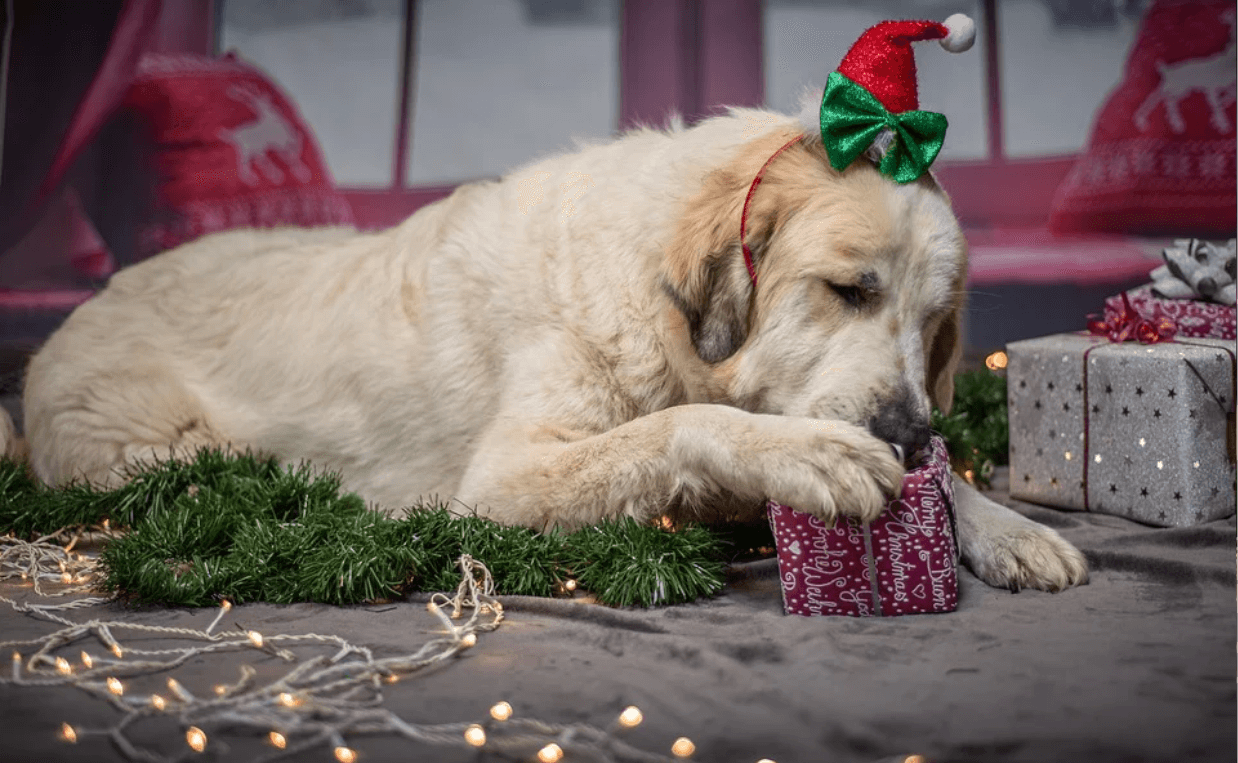
-
Stocking stuffers and dog treats
If your dog received a stocking full of treats, be sure to not let him or her gobble them all up a once. Eating too much can cause digestion problems; unchewed pet treats can get stuck in the trachea (windpipe) or gastrointestinal tract.
Symptoms of over-consumption include drooling, choking or vomiting.
Be aware it may take some time before you notice symptoms. If a bone or chew toy lodges in your dog’s stomach or intestines, the symptoms might not be immediate. Sometimes it may even take a day or two before your dog becomes ill. The worst-case scenario is when a hole develops at the blockage site, causing a life-threatening infection.
Contact your veterinarian if you’re concerned. Your vet may need to take x-rays or use an endoscope to see what the problem is, and where it’s located. Sometimes dogs need surgery to remove blockages in the intestines.
-
Food and snack bags
Food bags, such as the mylar-type potato chip bags, are especially dangerous for dogs. Many dogs like to scavenge for food and will sniff out empty bags. They might even stick their heads in to find crumbs. This can be dangerous because thin bags pose a suffocation hazard, just like for children.
To prevent this hazard, be sure to close bags up and either put away in a closed cabinet or thrown away in the trash.
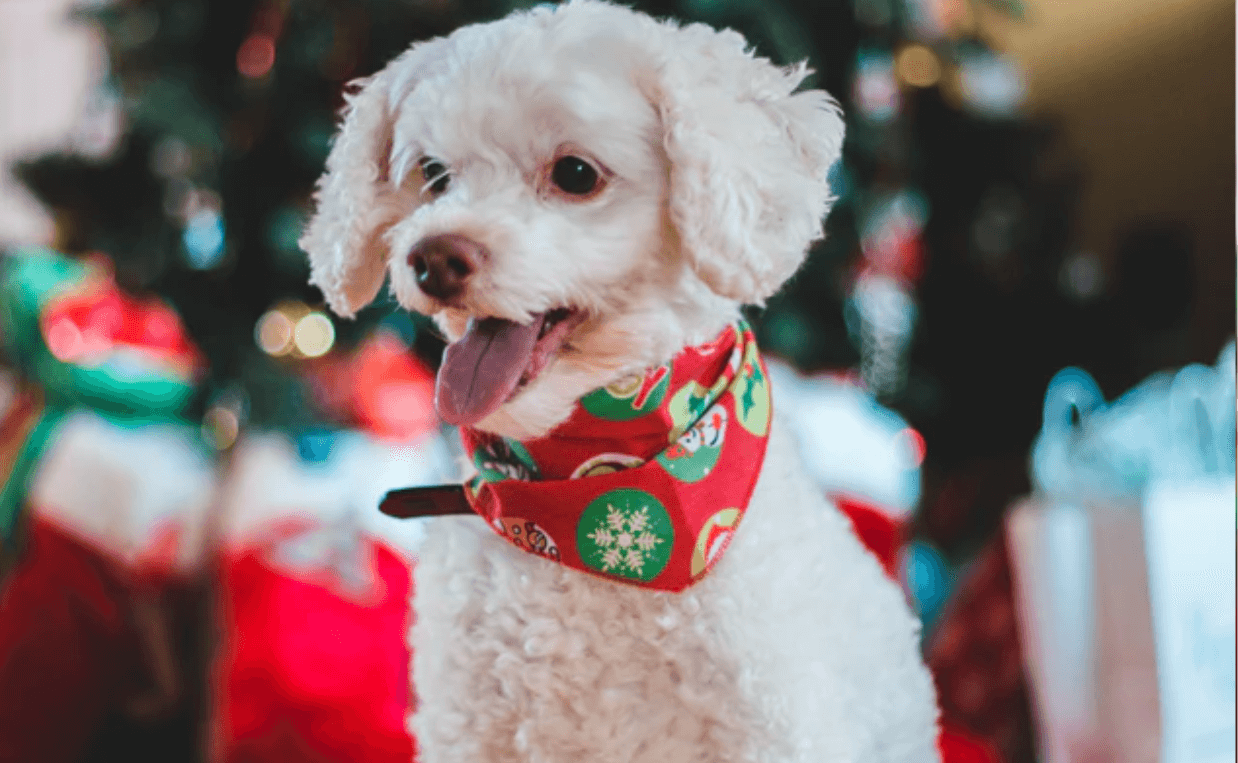
-
Various household products
Dogs, especially puppies, will often eat non-edible items. Be especially cautious about:
- Antifreeze
- Fabric softener sheets
- Ice melting products
- Liquid potpourri
- Mothballs
- Paints and solvents
- Rat and mouse bait
- Various household cleaners, such as bleach and toilet bowl cleaners
- Salt dough ornaments and play dough
-
House fires
Thousands of pets die in house fires every year; some of them are started by the animals themselves. Most fires started by pets involve an electrical cord, candles, stovetop or fireplace. To prevent house fires, watch out for:
- Open flames
- Stove knobs
- Candles (use electronic candles instead)
- Fireplace or outside fire pit
- Electrical cords (be sure your puppy doesn’t chew on them)
- Leaving dogs home alone (consider bringing them to daycare when you’re gone)
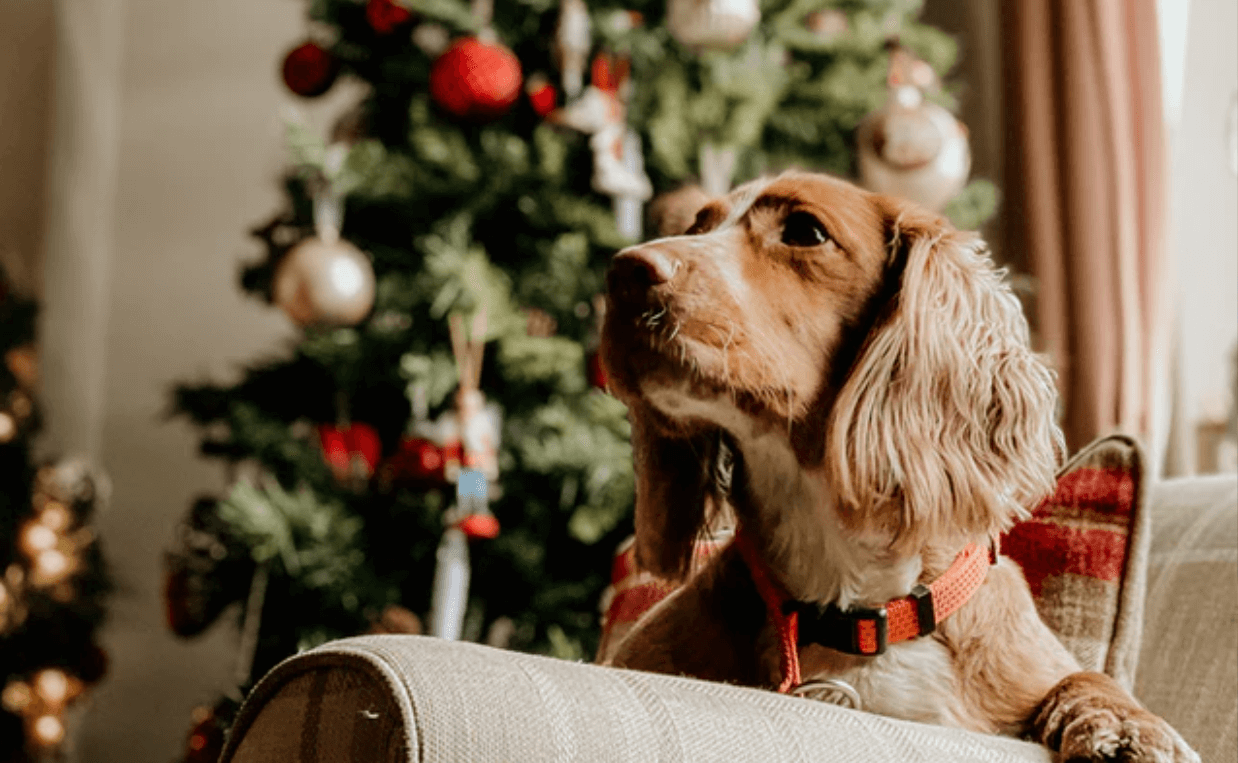
What To Do
Act quickly! If you think your dog has ingested something potentially dangerous CALL YOUR VETERINARIAN or a Pet Poison Control Center right away!
Pet Poison Control Centers
The potentially dangerous items listed above can vary in the level of toxicity in different dogs, depending on breed, size, age, underlying health issues and individual variances. To learn more about the items listed above and their toxicity to pets, call or go to these Pet Poison Control websites.
Here’s where to call or link to:
- PET POISON HELPINE – 855-764-7661 – https://www.petpoisonhelpline.com/
- ASPCA ANIMAL POISON CONTROL CENTER – 888-426-4435 – aspca.org/pet-care/animal-poisoncontrol.com

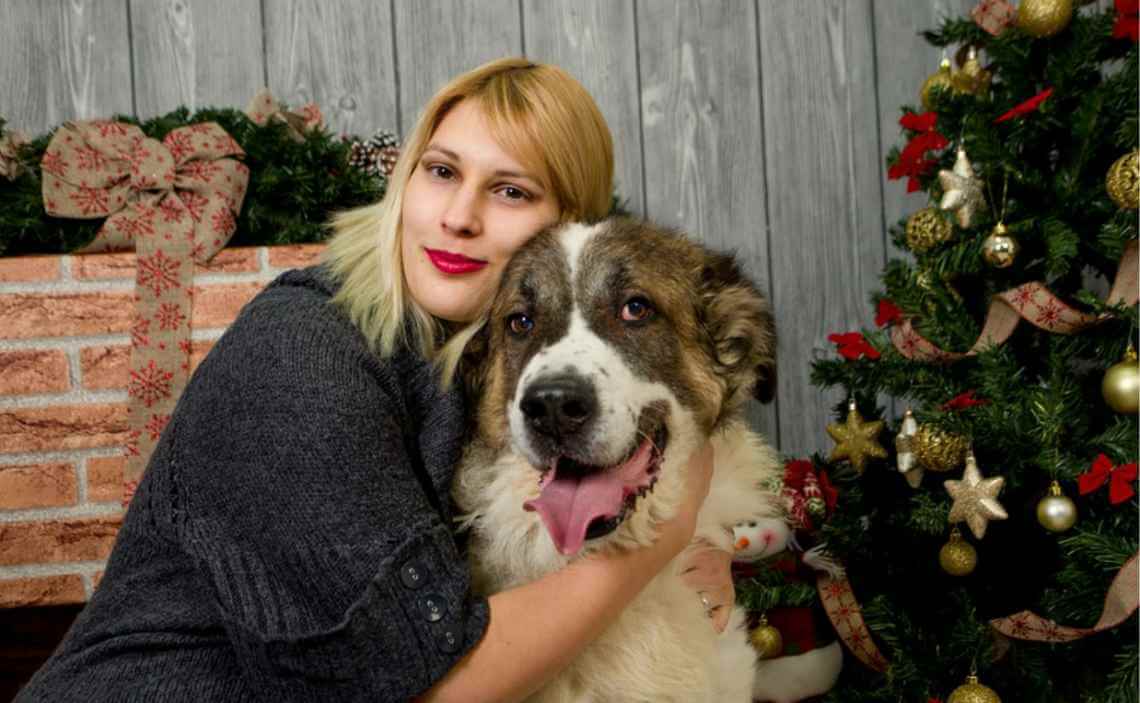
 Have a Heart for Chained Dogs Week
Have a Heart for Chained Dogs Week 10 Ways to Keep Your Dog Safe During the Fourth of July
10 Ways to Keep Your Dog Safe During the Fourth of July How to Choose the Best RV Pet Temperature Monitor to Keep Your Dog Safe
How to Choose the Best RV Pet Temperature Monitor to Keep Your Dog Safe Everything You Need to Know About Flying with Your Dog
Everything You Need to Know About Flying with Your Dog 8 Reasons You Should Crate Train Your Dog
8 Reasons You Should Crate Train Your Dog






Leave a Reply